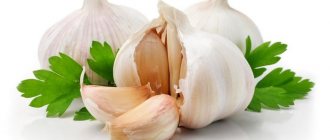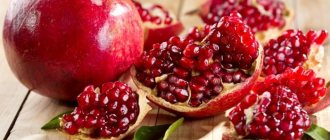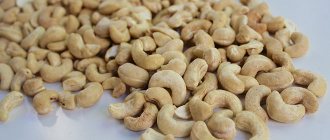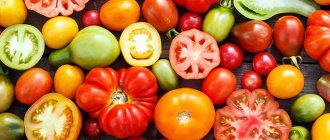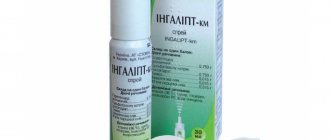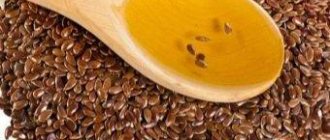How to choose the least harmful store product?
It is believed that a high-quality and natural product is very expensive, but this is not always the case.
When choosing store-bought mayonnaise, you should pay attention to the composition and its ingredients. We carefully examine the label and read the composition - mayonnaise must consist of vegetable oil (can be olive, sunflower), eggs (dry egg powder), vinegar, mustard and water, sugar and salt. Additives include: milk powder or cream, starch, dyes and preservatives
It is important to choose one that has the least amount of substances in the composition, is not made from egg powder, has a short shelf life (then fewer preservatives), and contains no emulsifiers, flavor enhancers, or stabilizers.
Packaging – it is best to buy in glass containers.
Check at home - the consistency should be uniform, as thick as sour cream, the color of the product should be from white to creamy yellow (if it’s brighter, it means there are dyes inside). The taste of mayonnaise should not be fatty, otherwise stale oil was used.
Low-calorie mayonnaise - a surrogate product
It has the same taste as mayonnaise sauce, and to prepare it, a large number of emulsifiers are used. Natural mayonnaise is a high-calorie product.
What is mayonnaise
Mayonnaise is a cold sauce that was invented in France in the mid-18th century. There are many stories of its origin. But one of the most striking attributes the fame of the inventor to the cook of the Duke of Richelieu.
During the siege of the city of Mahon by the British, the French ran out of food supplies. What was left was mostly eggs and olive oil. The cooks were ordered by the Duke to come up with a new dish for the French garrison to boost the morale of the army. One of them did not think long: he beat the egg yolks with butter, added lemon juice, salt and seasoned this mixture with spices. The Duke of Richelieu named the new and nutritious sauce in honor of the city of Mahon - “mayonnaise”.
In modern cooking, classic mayonnaise is considered a sauce based on egg yolks and an emulsion of vegetable oil (olive) with sugar, salt and lemon juice (vinegar). “Provencal” also has mustard among its ingredients.
The dangers of store-bought mayonnaise
Based on all of the above, the conclusion suggests itself that you should not eat mayonnaise purchased in a store. The product has a high calorie and fat content, and this is a threat to both the child and the mother. The baby begins to have problems with the gastrointestinal tract and digestion is disrupted.
You can find out in our article whether a nursing mother can pickle cucumbers.
Is it possible for a nursing mother to eat herring? Read here.
The store-bought product contains many different additives, flavor enhancers, flavorings, and other things. All these negative elements pose a threat to the health of the child and mother. In addition to the fact that mayonnaise is not suitable for infants, it is not recommended for older children.
When purchasing mayonnaise in a store, you might have seen that the packaging indicates a shelf life of several months. If we think logically, it becomes clear that any natural product cannot be stored for such a long time without preservatives, stabilizer and emulsifier.
In particular, this applies to sauce components such as eggs and sunflower oil. Most likely, egg powder was added to the sauce, not natural chicken eggs. In this case, an additional dose of thickeners and flavorings had to be added to prepare the product.
Almost all of the additives listed are classified as elements of group E. In the race for extra profit and in order to save money, natural vegetable oil is often replaced with chemical compounds. These types of fats are dangerous because the human body cannot absorb them. They are simply deposited on the walls of the stomach and lead to serious problems in the future.
You shouldn’t particularly trust the labels on the packaging of an almost natural product. The fact is that many dishonest entrepreneurs do not list all the components that they introduce into the product. Therefore, most specialists and pediatricians categorically argue that you should not use the sauce during breastfeeding. It needs to be eliminated from your diet, at least until the end of the baby's breastfeeding period.
Why should women who are breastfeeding not eat mayonnaise? And what harm do they do to a small, fragile organism?
The emergence of food addiction
It occurs not only from mayonnaise, but also from other harmful products. It is believed that the sooner such products enter the baby’s body, the better. Its negative reaction will deter mothers from further consumption. Taste and smell enhancers can cause addiction. If you use ready-made store-bought sauces that tend to be stored for too long, then food addiction will develop too quickly.
Exceeding normal body weight
Excess body weight can occur when eating foods that are too fatty. Moreover, this is a threat to both children and mothers. When a woman eats food seasoned with sauce, her portions become larger than normal.
The occurrence of various diseases
Once in the body, fats prevent the human internal organs from functioning normally. They negatively affect metabolism, pose a threat of developing peptic ulcers, worsen the appearance of the skin, and lead to brittle nails and hair.
Experts' opinion
Sheludko Olga, endocrinologist. I am categorically against mayonnaise. It promotes overeating and weight gain. The flavorings and emulsifiers it contains disrupt metabolism. Breastfeeding women need a rational and balanced menu; mayonnaise has no place there.
Vashchuk Natalya, gynecologist. During breastfeeding, the mother has the opportunity to get rid of the extra pounds gained during pregnancy. An average of 500 kcal is spent on milk production per day. If you follow your diet, you can return to your original weight in 6–9 months. But mayonnaise interferes with this. It stimulates appetite: a woman begins to eat more and stops monitoring the quality of food. In addition, most of the substances harmful to the baby that enter the female body with food are excreted: with urine, sweat, and breast milk.
Krasnykh Dmitry, pediatrician. Pustular skin diseases and other dermatitis occur in every third child. If he is breastfed, first of all it is necessary to analyze the mother's diet. In most cases, it is possible to identify gross violations when a woman consumes mayonnaise, fatty meats, and finished products with a high content of harmful additives. As soon as she begins to monitor nutrition, the child’s condition improves significantly, allergic reactions disappear.
Is it possible to eat a homemade product during breastfeeding and when?
Homemade sauce will not cause as much harm to health as industrial sauce.
But a nursing mother should eat it in limited quantities at first, and only when the baby is at least 3 months old. By this time, the mother’s diet has expanded significantly, and the baby’s gastrointestinal tract more easily adapts to new products. Homemade mayonnaise uses quality ingredients that contain vitamins and minerals. Vegetable oil contains vitamins A, E, group B and PP. And the yolk is a source of choline and a lot of useful substances:
- potassium;
- magnesium;
- phosphorus.
Chicken protein contains albumin, and lemon juice is a storehouse of vitamin C.
If your baby is allergic to chicken eggs, they can be replaced with quail eggs. By the way, the latter do not contain salmonella, so they can be added to the dish without fear.
Help: homemade sauce should be added to the menu in small portions. To begin with, you can eat half a teaspoon, and then monitor the child’s reaction. If nothing bothers him, gradually increase the amount.
Alternative to a store-bought product
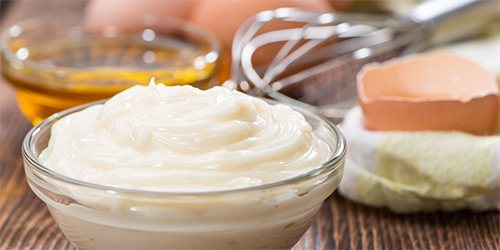
Typically, most women breastfeed their children until they are two years old. It’s a rare mother who can hold out for such a long time without trying delicious mayonnaise salads. Of course, there is a solution to such a problem. You can always make your own homemade mayonnaise. It will in many ways be inferior in taste to store-bought, but it will be made from natural products and will even bring some benefits to the body.
It’s worth saying right away that it’s better to forget about chicken eggs when breastfeeding. That’s why we use quail in any recipe. They do not cause allergies in babies. Vinegar is certainly harmful to children's bodies. It is replaced with freshly squeezed lemon juice. And vitamin C contained in lemon will also help protect the body from viruses. But this is in the absence of an allergy to citrus fruits. You can use any vegetable oil: sunflower or olive.
Mayonnaise made from these ingredients is not harmful to health. But still, as a precaution, you should not immediately eat it in large quantities. The sauce should be introduced into the diet in small portions. First, it’s better to try it in its pure form and only then season salads with it.
Experts allow nursing mothers to eat mayonnaise, but only if the following conditions are met:
- Home preparation and consumption of the product within 48 hours;
- There should be no gastronomic experiments in the first and second months of a child’s life. It is better to add new foods to the diet when the child is six months old;
- Absence of allergies in the child and mother;
- Despite the natural ingredients, homemade mayonnaise is still one of the allergens.
Homemade mayonnaise: recipe for mom
Meanwhile, new mothers often argue on thematic forums whether a nursing mother can use mayonnaise and criticize the restrictions in the “nursing diet.” The forbidden fruit is sweet, so the dilemma arises: to eat your favorite Olivier or not.
Conservative pediatricians are categorical on this matter: while you are breastfeeding, forget about mayonnaise. For those who are completely unbearable, it is recommended to replace it with sour cream or unsweetened yogurt. Doctors of the new generation allow the presence of the product in the mother’s diet, but only in its natural form.

3 rules for preparation and use during breastfeeding
Pediatricians emphasize: mayonnaise while breastfeeding can only be eaten if three rules are taken into account.
- Cook at home. Thus, the product must be prepared strictly in a home kitchen and eaten within a maximum of two days.
- We eat on time. Fatty foods, including our sauce, should not appear on the lactation menu in the first months after the birth of the baby. It is better to try a popular dressing closer to six months, following the general rules for introducing new products into the diet.
- We follow the recipe. Before preparing the sauce, you must be sure that the baby is not allergic to the ingredients in its composition. For example, egg yolk. The recipe for homemade mayonnaise is simple. You will need a blender. Two boiled yolks and two raw. Spices. Any vegetable oil. Acetic acid. In normal mode, all these components are simply mixed and diluted with water to the desired consistency. How to improve the recipe for a nursing mother? Chicken eggs can be replaced with quail eggs. For spices, use only salt and sugar. Instead of vinegar, use lemon juice.
The nutritional value
The table below shows in detail what useful components natural mayonnaise may contain. The calculation is made based on their quantity per 100 g of product.
Table - Chemical composition of homemade mayonnaise
| The nutritional value | Per 100 g | Vitamins | Per 100 g | Macro- and microelements | Per 100 g |
| Squirrels | 2.8 g | A | 0.02 mg | Calcium (Ca) | 33 mg |
| Fats | 67 g | PP | 0.1 mg | Magnesium (Mg) | 13 mg |
| Carbohydrates | 3.7 g | IN 1 | 0.01 mg | Sodium (Na) | 508 mg |
| AT 2 | 0.05 mg | Phosphorus (P) | 54 mg | ||
| AT 6 | 0.01 mg | Potassium (K) | 38 mg | ||
| E | 30 mg | Iron (Fe) | 1 mg | ||
| AT 4 | 14.3 mg |
Thus, the “correct” homemade mayonnaise, prepared especially for mom, can even be beneficial. Quail eggs are a source of vitamin A, which is a powerful antioxidant. And vitamins B1 and B2, which are needed for heart health, stress relief and energy boost. Vegetable oil can also provide energy and improve metabolism. But lemon is rich in vitamin C, which is necessary for strong immunity.
Can a nursing mother have mayonnaise? If yes, then only natural. But let's face it: preparing such a product at home is expensive. And mothers don’t have much time to constantly fuss around in the kitchen. So is it even worth starting this mayonnaise story, risking the baby’s health and accumulating unnecessary calories?
Can a nursing mother have mayonnaise while breastfeeding?
During the period of breastfeeding (BF), a woman needs adequate nutrition to quickly restore strength after pregnancy and childbirth, and improve the quality of breast milk. But the composition of store-bought mayonnaise does not meet the needs of a nursing mother, and in excess it can harm the health of the woman and her baby.
depositphotos.com. Jim_Filim.
Why do you want mayonnaise?
The irresistible urge to add mayonnaise to a prepared dish or to dress a salad with it causes anxiety among nursing mothers. But this desire has physiological reasons:
- Fatty food. A weakened female body needs additional resources, especially the first months of a child’s life. During this period, irregular sleep patterns and psycho-emotional fatigue are inevitable. High fat content makes the dressing high in calories, which means it can quickly replenish lost strength.
- Source of calcium. Mayonnaise also contains fat-soluble vitamins, macro- and microelements, of which calcium is of particular importance. It is rapidly consumed during pregnancy and breastfeeding, as the baby needs it for full growth. If there is a calcium deficiency in the body, there may be a strong desire to eat something seasoned with mayonnaise.
The dangers of store-bought mayonnaise
Nutritionists do not recommend consuming mayonnaise, especially during breastfeeding.
Carefully! There is a high probability of allergies, up to a critical condition requiring emergency medical care. Even if the woman herself does not experience any unpleasant phenomena, the components in the sauce can cause an immune response from the child’s body.
For woman
Nutritionists recommend that nursing women exclude fatty and fried foods from their diet, which increase the load on the gastrointestinal tract (GIT).
Possible side effects:
- allergy;
- suppression of lactation;
- excess calories consumed;
- constipation, diarrhea;
- nausea, heartburn;
- malfunctions of the pancreas and liver;
- increased risk of food poisoning.
Effect on lactation. Mayonnaise negatively affects lactation, worsening the quality and quantity of breast milk. With excess consumption, metabolism slows down and the quality of the blood changes. As a result, the mammary glands do not receive proper blood supply and nutrition, and their contractility is impaired.
For babies
- Mayonnaise contributes to the appearance of infant colic, since excess fats (lipids) disrupt the functioning of the digestive organs.
- The child is also more likely to develop diarrhea or constipation. Industrial mayonnaise contains eggs and other components that can be contaminated with pathogenic pathogens. Loose stools in a baby may be associated with dysbacteriosis, salmonellosis or other intestinal infections.
- High fat content of the product provokes the consumption of more liquid. The baby is constantly thirsty, and therefore requires more frequent breastfeeding. This affects lactation: a woman experiences interruptions in milk production and its quality decreases.
What if you are fasting?
Lenten mayonnaise produced in production differs only in calorie content.
- It also contains many harmful substances.
- There remains a risk of pathogenic bacteria developing in the sauce due to insufficiently high temperature processing.
- Reducing fat content is achieved by adding less high-calorie vegetable oils, most often harmful palm oil.
On a note. As an exception, a small amount of high-quality lean mayonnaise can be added to a salad or a hot dish, but it cannot be consumed daily during breastfeeding.
Harmful components
Mayonnaise contains components that are dangerous for mother and child.
- Vegetable fats. To reduce costs, manufacturers add oils to their products: sunflower, soybean, peanut, cottonseed, rapeseed, palm. During their digestion, free radicals, toxic breakdown products, are formed in the body.
- Powdered eggs do not contain even half of the nutrients found in fresh eggs.
- Skimmed cow/soy milk powder has technological significance. But the nutritional value of the original products is greatly reduced during processing.
- Flour increases calorie content, provokes gas formation and indigestion.
- Emulsifiers are chemical compounds that cause intoxication of the body.
- Xanthan gum causes dyspeptic disorders (nausea, heartburn, belching, flatulence, etc.).
- Food additives E, for example sodium alginate (E401), lead to intoxication, the development of allergic reactions, and increase cancer risks.
- Mustard powder provokes swelling. Fluid begins to accumulate pathologically in the lower extremities, and the woman experiences a deficiency in the process of milk production.
- Flavor enhancers lead to food addiction and contribute to overeating.
Industrial production of mayonnaise also involves the use of natural ingredients: sugar, baking soda, table salt, acetic acid, etc.
But to make more profit, manufacturers buy cheap, lower-quality raw materials.
Experts' opinion
Sheludko Olga, endocrinologist. I am categorically against mayonnaise. It promotes overeating and weight gain. The flavorings and emulsifiers it contains disrupt metabolism. Breastfeeding women need a rational and balanced menu; mayonnaise has no place there. Natalya Vashchuk, gynecologist.
During breastfeeding, the mother has the opportunity to get rid of the extra pounds gained during pregnancy. An average of 500 kcal is spent on milk production per day. If you follow your diet, you can return to your original weight in 6–9 months. But mayonnaise interferes with this.
It stimulates appetite: a woman begins to eat more and stops monitoring the quality of food. In addition, most of the substances harmful to the baby that enter the female body with food are excreted excretory: with urine, sweat, breast milk. Dmitry Krasnykh, pediatrician.
Pustular skin diseases and other dermatitis occur in every third child. If he is breastfed, first of all it is necessary to analyze the mother's diet.
In most cases, it is possible to identify gross violations when a woman consumes mayonnaise, fatty meats, and finished products with a high content of harmful additives. As soon as she begins to monitor nutrition, the child’s condition improves significantly, allergic reactions disappear.
Since when is it allowed?
Duration of breastfeeding, months Possibility of use
| 1–3 | Strongly not recommended |
| 4 | Not recommended |
| 5 | Available in limited quantities |
| 6 | —* |
| 7 | — |
| 8 | — |
| 9 | — |
| 10 | Allowed |
| 11–12 | — |
* see previous line. Be careful! In the first 4 months of breastfeeding, mothers should completely exclude mayonnaise from their menu. During this period, even a small amount can lead to digestive disorders, the development of colic, and allergic reactions in infants.
Gradually, the child’s gastrointestinal tract begins to work better; beneficial bacteria that appear in the intestines normalize digestion and strengthen the defenses of the tiny organism.
Starting from the 5th month, the baby is introduced to the first complementary foods, so the consumption of breast milk is somewhat reduced. From now on, rare, minor consumption of salads with mayonnaise is acceptable.
Attention! Even after the introduction of most products into children's complementary foods and a significant reduction in the frequency of breastfeeding, doctors do not recommend the regular use of store-bought mayonnaise and sauces based on it.
List of salads without mayonnaise
When breastfeeding, you can pay attention to salads without the addition of mayonnaise:
- Korean carrots;
- the vinaigrette;
- simple vegetable (cucumbers and tomatoes);
- vitamin (white cabbage with carrots);
- with chicken breast and sour cream dressing.
Homemade mayonnaise
Homemade mayonnaise is allowed for regular use (in reasonable quantities) and is even useful for a nursing woman. It can be added to meat, fish, salads.
Advantages
To prepare homemade mayonnaise, natural ingredients necessary for healthy lactation are used.
Main advantages of the product:
- Low calorie content with an optimal ratio of proteins, fats, carbohydrates (BJU). And even though the mass fraction of lipids is 60–65%, they are not dangerous for the body of mother and child, unlike industrial analogues.
- Rich vitamin composition. Lemon, quail eggs, olive oil and other natural ingredients are rich in vitamins A, E, C, group B.
- Promotes saturation and is a supplier of energy. This is important because a woman needs additional strength to produce milk, so the feeling of hunger occurs much more often.
- Increases psycho-emotional stability. The nutrients contained in homemade mayonnaise help counter increased emotional stress. The product will provide support in the event of the development of postpartum depression, chronic lack of sleep and overwork.
Recipe
There are many ways to prepare this dressing at home, but not all of them are acceptable for breastfeeding.
To prepare a homemade version of mayonnaise, you will need a blender, since you need to beat the eggs with high frequency, and doing it by hand is difficult.
Ingredients:
- 2 yolks;
- 100 ml vegetable oil;
- 5 g salt;
- 5 g sugar;
- 1 tbsp. l. freshly squeezed lemon juice.
Cooking method:
- Place the yolks, salt, sugar and lemon juice in a blender.
- Mix all products at low speed until smooth.
- Divide the vegetable oil into approximately 4 equal portions.
- Gradually add 1 part of oil to the mixture and beat with a blender at maximum speed.
- Achieve a homogeneous, sour cream-like consistency.
- Let it brew for 1-2 hours.
On a note. To obtain a more liquid consistency, add a small amount of boiled water at room temperature and beat at low speed.
Rules of use
For safety reasons, follow simple rules.
- Observe the shelf life: the finished product can be kept in the refrigerator, but no more than 2-3 days.
- Do not use the dressing before the infant is 4 months old. The restriction is due to the increased fat content of the product.
- Make sure that you and your baby are not allergic to any components of the sauce. Lemon, egg yolk, and vegetable oils are natural allergens, so they are introduced into the diet of a nursing mother in small portions, monitoring the reaction of the child’s body.
What to replace
A common alternative is mustard. But it is also contraindicated during breastfeeding due to the risk of dyspeptic disorders in the child.
The most useful dressings for breastfeeding, competing with mayonnaise:
- sour cream;
- unsweetened yogurt (Greek, Bulgarian);
- bifidok and other fermented milk products without additives;
- olive and other high-quality vegetable oils;
- freshly squeezed lemon juice.
Many foods are contraindicated when breastfeeding, especially those that stimulate appetite and contain many food additives. Mayonnaise, mustard, and ketchup are prohibited. The increased salt content in these sauces stimulates fluid retention in the body and milk production is disrupted.
Is butter allowed for a nursing mother?
Why mayonnaise is dangerous when breastfeedingLink to main publication
Source: https://PitanieDetok.ru/grudnoe/mayonez-gv.html
What can you replace mayonnaise with?
Mayonnaise in your favorite dishes can be easily replaced with other products, which will only make them healthier. Suitable for these purposes:
- natural unsweetened yogurt (you can add garlic and/or unrefined vegetable oil);
- salted kefir;
- sour cream (mix with mustard, lemon juice, horseradish, herbs, garlic if desired);
- milk, mashed with cottage cheese (for 1 glass of milk, 100 grams of cottage cheese);
- unrefined vegetable oil (sunflower, olive);
- heavy cream with herbs, garlic, cheese, horseradish;
- lemon juice.
Choose from the list above what is most suitable for your dish: for vegetable salads - oil, for meat or fish dishes - milk dressings, for marinade - lemon juice. Feel free to experiment by creating your own original sauces from ingredients that suit you and your baby personally.

Create your own culinary masterpieces by choosing ingredients that suit you and your baby
What if you are fasting?
Lenten mayonnaise produced in production differs only in calorie content.
- It also contains many harmful substances.
- There remains a risk of pathogenic bacteria developing in the sauce due to insufficiently high temperature processing.
- Reducing fat content is achieved by adding less high-calorie vegetable oils, most often harmful palm oil.
On a note. As an exception, a small amount of high-quality lean mayonnaise can be added to a salad or a hot dish, but it cannot be consumed daily during breastfeeding.
Homemade mayonnaise
The nutritional value
We can only talk about the benefits of the sauce if it is prepared independently from natural ingredients. So, eggs contain many useful substances, for example: albumin, choline, sodium, iron, calcium, vitamins.
Mayonnaise is considered a high-calorie product. It contains about 700 kcal per 100 g. Protein - 2.8 g, carbohydrates - about 4, but fat - 67 g. If you choose good quality oil as a component, then mayonnaise will not become a big problem, other than excess weight. But cheap fats settle on the walls of blood vessels and clog the ducts. This disrupts blood circulation and makes it difficult for the heart muscle to work.
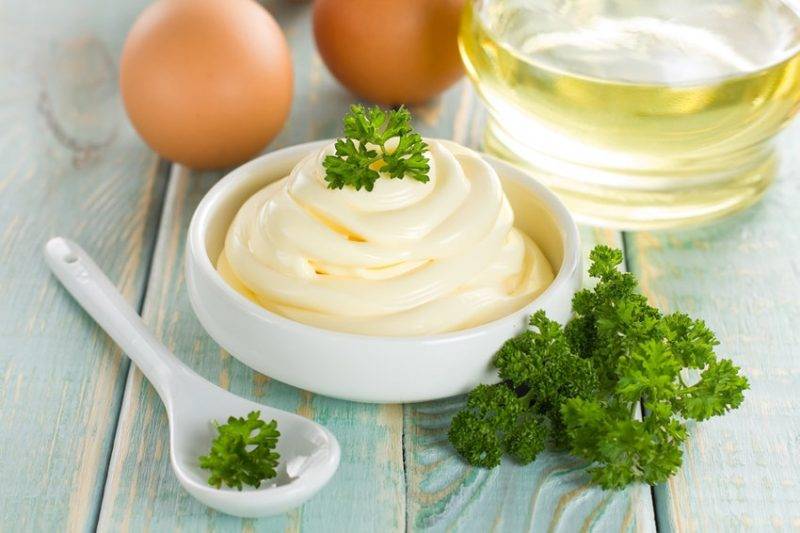
Contraindications and possible harm
There is a risk group in which eating mayonnaise during breastfeeding will provoke a large number of problems. Let's look at this question in more detail:
- Women with allergies who have a reaction to eggs should not eat the sauce, as there is a risk of poor health for both her and the baby.
- If the expectant mother in her last term heard from the doctor that she has gestosis, it is worth thinking about the health of the gastrointestinal tract. Most likely, not everything is in order there. In this case, white sauce is prohibited for consumption.
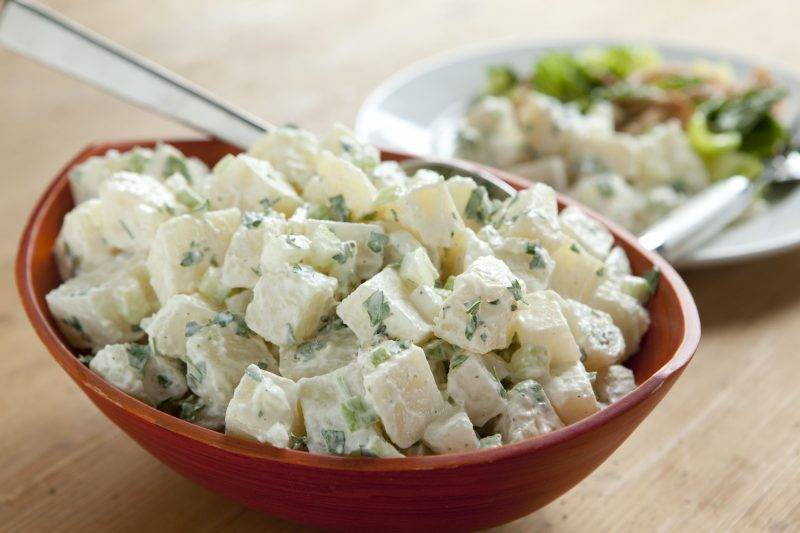
How to properly include in the diet during breastfeeding
Is it possible for nursing mothers to make homemade mayonnaise? This version of the sauce is considered the most acceptable, however, some rules should be followed when introducing it to the menu:
- Homemade product should be eaten within a maximum of two days. Remember, it does not contain such additives that extend the shelf life of mayonnaise.
- It is allowed to introduce such a fatty sauce into the diet only 5-6 months after birth.
- Try a little mayonnaise the first time, and then carefully monitor your little one’s reaction for two days. If all goes well, increase the amount consumed gradually.
- If you prepare the sauce yourself, check in advance whether your child has an allergic reaction to any ingredient.

Can a nursing mother have mayonnaise: is there any harm to the baby, tips and recommendations
Proper nutrition for a nursing mother is the key to the good health of her child. During this period, a woman limits her diet from junk food. Some mothers consider mayonnaise, especially store-bought, to be the most dangerous product during lactation. Can a nursing mother have mayonnaise? The article will discuss the benefits and harms of the product.
The history of mayonnaise
The world owes the appearance of the sauce to the French.
There are many stories about mayonnaise about its origin, but the most popular is that it was created thanks to the cook of the Duke of Richelieu, when during the siege of the city of Mayon by the British, the French ran out of food, and their reserves consisted of eggs and olive oil. To raise the fighting spirit of the army, Duke Richelieu ordered the preparation of a new dish. So the result was mayonnaise, named after the besieged city.
Composition of store-bought mayonnaise
Store-bought mayonnaise has a pleasant taste and is included in many salads, but contains many harmful substances that negatively affect the body of a woman and her child.
Can a nursing mother eat mayonnaise? To answer this question, you first need to consider the composition of the sauce:
- Vegetable oil. Due to the fact that manufacturers save on mayonnaise components, it is not always of really high quality. Soybean or rapeseed oil is processed and therefore loses its vitamins. These fats are not digested by the stomach, but settle on the walls of blood vessels.
- Egg powder. Fresh eggs are added to mayonnaise very rarely.
- Preservatives.
- Dyes.
- Thickeners.
- Flavor enhancers.
- Skimmed milk powder.
- Vinegar.
- Mustard powder.
- Low cost soy flour.
- Salt, sugar.
- Corn starch.
Mayonnaise contains many harmful substances that are poorly digested by the stomach or not absorbed by it at all. With constant use, this can lead to diseases of the digestive system.
No matter how tasty the sauce bought in the supermarket may seem, there are many arguments that speak against it. Here's how taking mayonnaise ends for a nursing woman's health:
- Food addiction. The more often a woman includes sauce in her diet, the blander her food will seem without it.
- Overweight. Mayonnaise has high calorie content. Per 100 g of product 700 kcal. At the same time, you can eat a larger portion along with the sauce.
- Nutritionists consider the sauce a harmful product. It can cause heart disease, stomach ulcers, pancreatitis, slow metabolism and high blood pressure.
- Nails and hair become brittle and fragile, and acne appears on the skin.
- A mayonnaise component such as mustard powder can slow down milk production and retain fluid in the body. As a result, swelling appears. The more often a breastfeeding woman includes sauce in her diet, the higher the risk that breast milk production will stop.
- Dyes and preservatives can cause cancer cells, which can lead to cancerous tumors.
Eating mayonnaise is especially dangerous for women who are allergic to eggs. After all, this can worsen the well-being of not only the mother, but also the baby.
Can a nursing mother have mayonnaise? Having studied the composition of the sauce and its effect on the body, we can say that it is a harmful product. Therefore, a woman should not use it during lactation.
Is it possible to use mayonnaise while breastfeeding? Due to its composition, the sauce is not allowed for consumption by women, because it negatively affects the health of the child:
- Allergy. The egg contained in mayonnaise can provoke a similar reaction.
- Due to the components of the sauce, the baby may experience colic, increased gas production and problems with stool.
- Impaired kidney function; this organ is not yet ready to remove harmful substances from the body.
- Vinegar in the sauce has a negative effect on the intestinal mucosa.
Until the child reaches the age of 3 months, it is not recommended for a nursing woman to consume mayonnaise. Indeed, at this age, processes of increased gas formation occur in the baby’s body, which gives him a lot of negative sensations.
This applies to most foods that a woman consumes while breastfeeding. When introducing a new dish into her diet, she needs to know when to stop and start with a minimum amount.
Mayonnaise can also have a negative impact on a child’s health due to the fact that unscrupulous manufacturers prepare it from expired products. It is best to replace such a product with a safe sauce.
Mayonnaise alternative
The sauce is a seasoning, not an independent dish, so you can find a replacement for it. Instead of mayonnaise, a nursing mother can include the following alternative dressings in her diet:
- sour cream;
- salad yogurt;
- olive or vegetable oil;
- sauces and dressings that you can prepare at home yourself.
You can add herbs (dill, parsley or basil), a little mustard powder, cucumber or bell pepper to them. This sauce is much healthier than store-bought mayonnaise and is not inferior to it in taste. Refills can diversify the menu of a nursing mother.
Can I use mayonnaise while breastfeeding? Not every lover of white sauce is able to withstand this entire period without trying the salad dressed with it.
It is in such cases that it is best to prepare homemade mayonnaise. It is much safer than store-bought because it will not contain harmful food additives.
And the main positive point is that you can choose the ingredients that will make up the sauce.
Vinegar is replaced with lemon juice, after first making sure that the baby is not allergic to it. And chicken eggs can be replaced with quail eggs.
Sauce recipe
Making homemade mayonnaise yourself is not as difficult as it seems. It is much healthier than store-bought, because it is not so harmful. To prepare the sauce you will need the following ingredients:
- 200 ml vegetable or olive oil.
- 4 quail or chicken egg yolks.
- 1/2 teaspoon sugar.
- The same amount of salt.
- Glass of water.
- Lemon juice.
Cooking method:
- Boil two yolks, and remove the other 2 from the refrigerator and wait until they warm up.
- You need to prepare a mixing container. Combine boiled yolks with raw ones.
- Add salt and sugar to the mixture, as well as mustard if desired.
- Beat with a blender until smooth.
- Add oil to the mixture gradually, in a thin stream.
- At the end of the process, add water to the mayonnaise. To stir thoroughly.
Can a nursing mother have homemade mayonnaise? This sauce will not have a negative effect on the body of a woman and her child. During the preparation period, it is necessary to control the technological process and include in mayonnaise those ingredients that will not cause allergies.
Proper use of homemade mayonnaise
This version of the sauce will have the most preferable effect on the body of the mother and child, but the following rules should be followed:
- Homemade mayonnaise must be consumed within 2 days. It contains no harmful components, which give it a long shelf life.
- This fatty sauce is allowed to be introduced into the diet only 4-5 months after birth.
- The first time you should try a little mayonnaise and observe the baby's reaction for 2 days. If everything is fine, then you can continue to use the sauce, gradually increasing its quantity.
- It is necessary to check in advance whether the child is allergic to the components of the sauce.
Can a nursing mother have mayonnaise and ketchup? It is not recommended to use these additives in food due to the presence of harmful substances in their composition. It is best to use homemade mayonnaise or an alternative.
Is it possible to use mayonnaise while breastfeeding? It is common knowledge that sauce is a harmful product. However, if mayonnaise is one of a woman’s favorite condiments, and she is willing to take risks for a portion of a delicious salad, then there are a number of rules that, if followed, will reduce the negative impact on the baby’s body.
Here is a list of recommendations:
- It is necessary to introduce a new product into the diet in minimal quantities. This could be 1 teaspoon.
- It is not recommended to eat 2 new dishes together. This rule must be strictly followed. After all, if an allergy occurs, it will be difficult to determine what triggered this condition.
- Salad with mayonnaise should not be consumed before bed. It is best to do this in the first half of the day.
- You can mix mayonnaise with sour cream or completely replace it with salad yogurt.
- If an alternative sauce spoils the taste of the salad, then it is best to prepare such a composition yourself.
By following these rules, a woman can significantly reduce the negative impact on the baby's health.
Conclusion
Mayonnaise is a product that is undesirable for a woman to consume during breastfeeding. After all, it can negatively affect the baby’s health. The best alternative to mayonnaise are homemade sauces, sour cream and salad yogurt.
Source: https://FB.ru/article/403666/mojno-li-kormyaschey-mame-mayonez-est-li-vred-dlya-rebenka-sovetyi-i-rekomendatsii
What can you replace mayonnaise with?
The duration of breastfeeding is within two years. Over such a long period of time, it is quite difficult to give up your favorite foods. To dress salads, sauces should be used that will not negatively affect the baby’s health. Can a nursing mother have mayonnaise? The purchased product should not be eaten not only during lactation, but even during pregnancy. Today, there is a wide range of recipes used to make sauce at home. It has similar taste qualities, but at the same time cannot negatively affect the baby’s well-being.
Freshly squeezed lemon juice can completely replace vinegar. It contains a large amount of useful substances and minerals. Vitamin C strengthens the immune system and improves the body's ability to resist disease. Sunflower oil can be replaced with olive oil.
In this case, the sauce will not negatively affect the functioning of the digestive system. At the stage of introducing the product, you can try it in small quantities. Next, you should observe the baby’s body’s reaction for two days. If there is no allergy, the sauce can be regularly used in the mother's diet.
Mayonnaise
To understand whether mayonnaise can be introduced into a nursing mother’s diet, let’s look at the ingredients of this product. This sauce is an emulsion, the key components of which are vegetable oil and egg. The composition also includes vinegar and mustard.
An excess of vegetable oil in the diet overloads the pancreas and liver, which leads to disruptions in their functioning and worsens the functioning of the gastrointestinal tract. Due to the high calorie content of the oil, mayonnaise provokes rapid weight gain. Please note that while breastfeeding you should limit your fat intake.
Vinegar and mustard in a mother’s diet worsen the taste of breast milk (as a result, the baby becomes capricious and refuses to eat) and irritate the baby’s digestive tract. In addition, mustard is one of the foods that cause allergies.
Mayonnaise producers traditionally use eggs in the form of dry powder - heat treatment of the product eliminates the risk of salmonella entering the product. However, store-bought mayonnaise, as already mentioned here, contains food additives that are harmful to health.
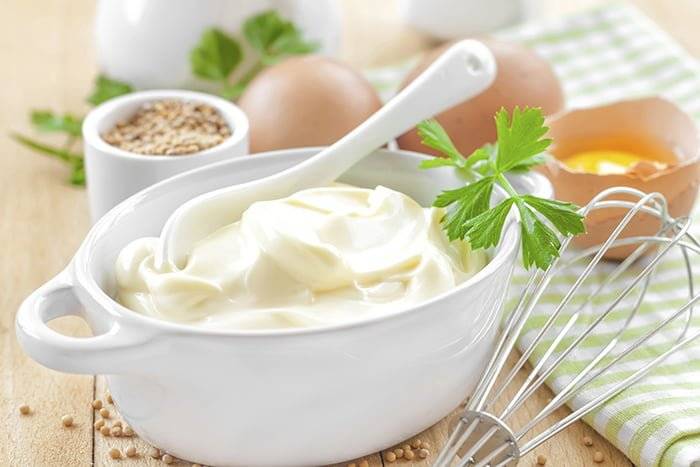
The question often arises: can a nursing mother replace store-bought sauce with homemade sauce? The recipe allows the use of lemon juice instead of vinegar, but it, like mustard, which cannot be avoided, is an allergen for the baby.
But the main danger of homemade mayonnaise is raw eggs, chicken or quail. Salmonella bacteria, which can contaminate an egg, cause extremely severe intoxication of the body. There is a danger of dehydration as a result of excessive vomiting and diarrhea. Salmonella can provoke the development of reactive arthritis and meningitis.
Salmonellosis is extremely dangerous during pregnancy (bacteria can infect the fetus by penetrating the placental barrier). The disease of a nursing mother will disrupt the normal course of natural feeding of the child and will negatively affect lactation.
You may find advice to breastfeeding mothers to use homemade mayonnaise the day after preparation, “testing its safety” on someone around them. But the incubation period of salmonellosis lasts from several hours to three days or more, so the risk cannot be completely eliminated.
Practice shows that many women in the late period of breastfeeding, when the baby’s digestive system has adapted to many new products, allow themselves some salads or other dishes containing mayonnaise. You can choose a store-bought product with a minimum amount of artificial additives and make sure that the amount of sauce does not exceed a couple of teaspoons.
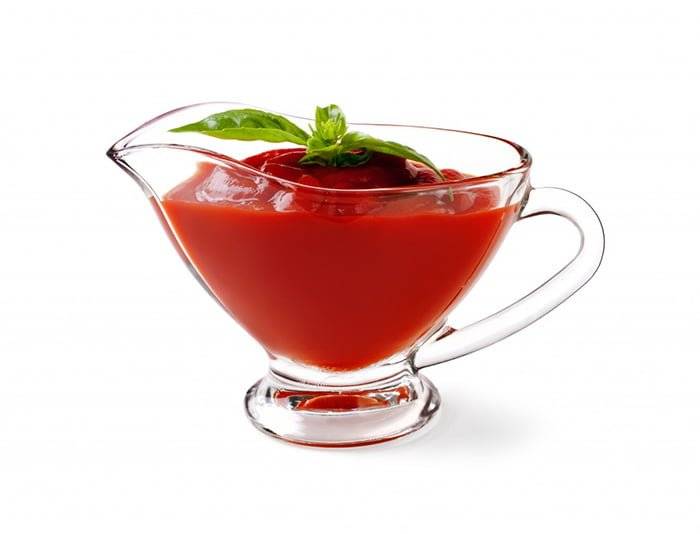
Homemade mayonnaise for salads
Mayonnaise is the most popular dressing for meat and vegetable salads. Unfortunately, store-bought sauces cannot be called healthy in any way - a whole range of preservatives, additives and flavor enhancers can adversely affect the health of the baby and mother. An alternative to store-bought sauce can be homemade mayonnaise. The recipe impresses with its simplicity and speed of preparation. For homemade mayonnaise you will need:
- milk (any fat content) - 100 ml;
- vegetable oil of flavor - 250 ml;
- mustard - 1 tsp;
- lemon juice - 1–2 tbsp;
- salt (to taste) - 0.5 tsp.
Cooking process. Beat milk with vegetable oil in a blender until thick. This will take 10-15 seconds. Add mustard, salt and lemon juice, beat the mixture with a blender for another 10 seconds. The output is 400-450 ml. mayonnaise.
There are other recipes for mayonnaise sauce, but the main ingredient in them is raw eggs. To prevent salmonellosis, it is better not to eat raw eggs. This will make breastfeeding safe.
What about homemade?
You can only talk about the benefits of mayonnaise during breastfeeding if you mean a natural sauce and the baby is not allergic to its components. For example, eggs contain albumin, a protein that is beneficial for the body. Chicken yolk is a good source of choline. In addition, homemade mayonnaise contains:
- vitamins: PP, E, B2, B1, A.
- minerals: iron, phosphorus, potassium, sodium, magnesium, calcium.
But still, natural mayonnaise, due to the fact that it contains eggs, remains a serious allergen. In order not to provoke an allergy in the baby while breastfeeding, it is better for the mother to replace chicken eggs with quail eggs. And introduce the product into the diet gradually.
Homemade mayonnaise recipe for breastfeeding
This recipe is very simple and perfect for nursing mothers. However, we must take into account that you will need both boiled and raw eggs. Therefore, it is necessary to use high-quality certified eggs. If desired, you can omit mustard and lemon juice from the recipe.
- 1 cup vegetable oil
- 4 egg yolks
- ½ tsp. Sahara
- ½ tsp salt
- 250 ml water
- 1 lemon (optional)
- take 4 eggs out of the refrigerator in advance to keep warm, boil 2 of them;
- Place 2 boiled, warm yolks on the bottom of the dish and add 2 raw yolks to them;
- add salt and sugar to the yolks (you can add mustard to taste);
- beat everything with a blender until smooth;
- then gradually add vegetable oil (or olive oil) - first add half a teaspoon at a time, while whisking well, then add oil in a thin stream while whipping;
- add lemon juice, beat again (you can do without juice);
- then add water little by little, beating until the desired consistency is reached.
Natural homemade mayonnaise according to this recipe can be eaten while breastfeeding.
The harm of mayonnaise
Now we will talk about an industrial product, which is no match for a homemade one. Mayonnaise producers add various preservatives, colorings and flavorings to the product for its piquant taste.
What is included in the product:
- vegetable or sunflower oil, but the product may also contain lower quality oils - rapeseed, peanut, and soybean;
- egg powder;
- premium flour or, conversely, soy flour;
- water;
- powdered cow's or soy milk;
- sugar;
- acetic acid;
- mustard powder;
- corn starch;
- baking soda;
- xanthan gum;
- emulsifier FOLS;
- many E-additives;
- whey protein concentrate;
- sodium alginate;
- phospholipid dietary supplement;
- salt.
Looking at this composition, we can immediately conclude that mayonnaise will not bring anything useful to either mother or baby.
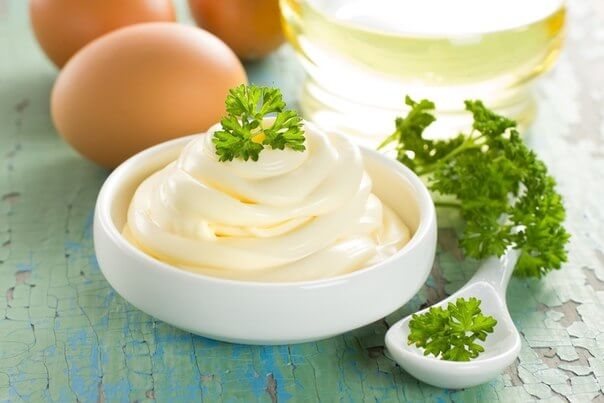
Harmful components
Mayonnaise contains components that are dangerous for mother and child.
- Vegetable fats. To reduce costs, manufacturers add oils to their products: sunflower, soybean, peanut, cottonseed, rapeseed, palm. During their digestion, free radicals, toxic breakdown products, are formed in the body.
- Powdered eggs do not contain even half of the nutrients found in fresh eggs.
- Skimmed cow/soy milk powder has technological significance. But the nutritional value of the original products is greatly reduced during processing.
- Flour increases calorie content, provokes gas formation and indigestion.
- Emulsifiers are chemical compounds that cause intoxication of the body.
- Xanthan gum causes dyspeptic disorders (nausea, heartburn, belching, flatulence, etc.).
- Food additives E, for example sodium alginate (E401), lead to intoxication, the development of allergic reactions, and increase cancer risks.
- Mustard powder provokes swelling. Fluid begins to accumulate pathologically in the lower extremities, and the woman experiences a deficiency in the process of milk production.
- Flavor enhancers lead to food addiction and contribute to overeating.
Industrial production of mayonnaise also involves the use of natural ingredients: sugar, baking soda, table salt, acetic acid, etc.
But to make more profit, manufacturers buy cheap, lower-quality raw materials.
Recommendations for mom
So, let’s summarize, in what cases and what kind of mayonnaise can nursing mothers use? If mayonnaise is prepared independently at home, only the first two days can be consumed by nursing mothers. You need to introduce it into your diet gradually - only when the baby is six months old. Only in the fourth month of his life do he begin to develop enzymes that are capable of breaking down protein, fruit acids and other components.
Before use, you need to make sure that the baby does not have an allergic reaction to one of the components. To do this, you first need to try to eat each ingredient separately and see if the baby has an allergy.
Recipe:
Homemade mayonnaise for a nursing mother is very easy to prepare, you need to mix 2 raw and 2 boiled quail eggs, add lemon juice and salt. Mix all products in a blender until smooth.
Mayonnaise is a product that should be avoided during pregnancy. If for some reason you can’t completely refuse it, then you need to prepare it yourself at home. The child’s body, both in the womb and in the first year of life, is very vulnerable, so deadly foods should not appear in the diet of the expectant and nursing mother.
Alternative replacement for mayonnaise
Mayonnaise is only a seasoning, and not an independent dish, which means you can find a replacement for it. During lactation, it is better for a woman to give preference to the following alternative salad dressings:
- sour cream;
- salad yogurt;
- olive or sunflower oil;
- sauces and dressings that you can prepare yourself from the ingredients listed above.
However, not every lover of white sauce is able to withstand the entire period of breastfeeding without trying a salad dressed with it. In such cases, a nursing mother can prepare homemade mayonnaise. This option is much safer than its industrial counterpart, since it will not contain harmful food additives. Plus, you can always control the ingredients it will consist of. For example, replace vinegar with lemon juice, making sure initially that the baby is not allergic to lemons, or use quail eggs instead of chicken eggs.
Homemade mayonnaise recipes
Below is one of the recipes for homemade sauce, which is ideal for nursing mothers who cannot imagine their diet without such a dressing. To prepare it you will need the following products:
- vegetable oil – 1 cup;
- egg yolk – 4 pieces;
- sugar - half a teaspoon;
- salt - half a teaspoon;
- water – 250 ml;
- lemon optional - 1 piece (see also: can a nursing mother have lemon while breastfeeding?).
- Remove the eggs from the refrigerator and let them warm up. Boil two of them.
- Place the boiled yolks at the bottom of the whipping container and add raw ones to them.
- Add salt, sugar and mustard to them as desired.
- Beat with a blender until smooth.
- Next, while whipping, add vegetable oil, first with a teaspoon, then adding in a thin stream.
- Add lemon juice and beat.
- At the end, gradually add water and beat to the required consistency. Ready!
Fermented milk products and milk
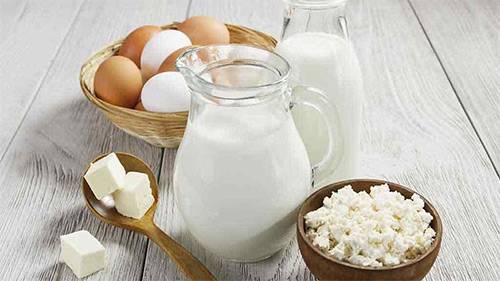
Whole milk
Taking cow's milk does not affect the quality of breast milk, but the protein it contains is an allergen and can harm the baby.
The list of permitted products includes baked milk, because... has better digestibility and does not affect the quality of lactation. Goat's milk is suitable during breastfeeding, but not everyone can drink it due to its specific taste. First, all cereals are boiled in water; porridge in milk can be cooked starting from the fourth month.
Cottage cheese
Eating cottage cheese is a must when breastfeeding. Without it, the formation of the bone skeleton will be difficult. It is also an excellent stimulant for brain activity and mental processes.
It is important that the cottage cheese contains no impurities or additives, and it is even better if it is homemade
Kefir
Some nursing mothers doubt that they can continue breastfeeding after taking kefir, because it contains a small amount of alcohol. But its quantity is negligible and insignificant, which absolutely does not threaten any unpleasant consequences for the baby. However, pediatricians suggest including it in the diet no earlier than the child is six months old. Kefir has a positive effect on the intestinal microflora, improves the condition of hair and nails, but you should not include it in the menu more than three times a week.
Cheese
The list of products for breastfeeding contains cheeses. When the baby turns 2 months old, hard varieties are introduced into the permitted foods during breastfeeding, and then feta cheese or other soft and pickled varieties are added to them. As for processed cheeses, it is advisable to avoid them.
Sour cream
Sour cream for nursing mothers is indicated with a low fat content; it is added to cottage cheese, salad or soup. Dairy products such as fermented baked milk or yogurt also do no harm during guards. Products purchased by nursing mothers must be fresh, so it is necessary to additionally check their production date when purchasing.
How do you know if mayonnaise can be introduced into your diet right away?
To find out whether a nursing mother can season her food with homemade mayonnaise without harming the baby, you need to gradually add individual ingredients to the menu - eggs, lemon juice, which are considered allergens. Are there any problems?
You can safely add your favorite sauce to a fresh vegetable salad, but if your baby has rashes, then it’s better not to risk your health and enjoy sour cream, natural yogurt or a dressing of olive oil and mustard.
The most important desire of a woman who has recently experienced the happiness of motherhood is the good health of her baby. Sometimes, to fulfill it, a new mother, in addition to caring for her baby, is forced for some time to radically change her taste preferences in the direction of their usefulness and naturalness. Everything would be fine, but the temptation of food, especially on holidays, is so great that it is very difficult to resist, for example, some appetizing and tasty salad with a mayonnaise base. And the question immediately arises: “Is mayonnaise possible for a nursing mother?” Well, we answer!
Not recommended product: who is at risk?
In search of an answer to the question of whether mayonnaise is possible for nursing mothers, one indisputable fact was discovered - every source of information claims that this product is on the list of not recommended. It is necessary for nursing mothers who are prone to allergic reactions, have problems with the gastrointestinal tract, and those who were diagnosed with gestosis in late pregnancy to exclude mayonnaise from their diet while breastfeeding.
Why can breastfeeding women not have mayonnaise?
The main reason for the “ban” on eating mayonnaise for nursing mothers is the high risk of an allergic reaction of the baby to the ingredients contained in the sauce. When given to a baby through breast milk, eggs in mayonnaise, as one of the most common allergens, can trigger an allergy. Therefore, pediatricians insist that until the child reaches 3 months of age, they are consumed by the mother exclusively in baked goods, the manufacturing technology of which makes it possible to completely destroy the protein and minimize the effect of the allergen. Vinegar and mustard, also included in mayonnaise, can have unpredictable effects in the baby’s body.
Another reason for excluding mayonnaise from the menu during lactation is that the product often contains a large number of food additives, which include preservatives, dyes and flavors. The harm they cause to infants is several times greater than their negative impact on the adult body. Due to the immaturity of the gastrointestinal tract, they force it to work harder, which makes it difficult for the baby to digest food. Removing such substances from a child’s body has a bad effect on kidney function. In addition, food additives can also lead to allergies in a child. There are opinions that, by retaining fluid in the body, they inhibit lactation itself, thereby disrupting the natural process of milk production.
Alternative solutions
If, despite information about the consequences of eating mayonnaise for nursing mothers, you still have the desire to eat this sauce, you can take a risk. In this case, it is better to prepare mayonnaise yourself, and replace the chicken egg with a hypoallergenic quail egg, vinegar with lemon juice, also taking into account the risk of the child developing an allergy to citrus fruits.
Eat a little product, and then be sure to monitor the general condition of the child: no rash, normal sleep and bowel movements - this means that you can eat mayonnaise, but it is better not to abuse it. Its, at first glance, usefulness in replenishing fat reserves with the help of natural vegetable oils is nothing compared to the possible harm to the body of both mother and baby. As an alternative to the “disgraced” mayonnaise for nursing mothers, healthy products such as sour cream, yogurt, and vegetable oil can be used.
We hope that for the benefit of your baby’s still fragile health, you will make the right choice!
Is it possible or not to eat mayonnaise while breastfeeding, and how can it harm the baby? This is discussed in our article.
The benefits of beet salad for a nursing mother
Beetroot has been used in cooking for quite a long time - for us it is a familiar vegetable that is included in a large number of dishes. Interestingly, in addition to excellent taste, this product also has a lot of useful properties. For this reason, beets are almost always included in proper nutrition programs.
Pediatricians' recommendations regarding nutrition for nursing mothers are quite simple - a young mother should eat a varied, but healthy diet. It is logical that with such similarities in nutritional principles, beets should be included in the diet of a nursing mother, but is this so?
Most often, women are confused by the bright color of this vegetable. Red foods often turn out to be the strongest allergens and their consumption during lactation is not recommended, but does this rule apply to beets?
Actually no, beets are safe in this regard. Of course, like any other product, it can cause a negative reaction in the baby, but this applies to any product in principle. This vegetable is not considered a strong allergen.
But what it definitely is is a container for a huge amount of vitamins and microelements that are so necessary for a young mother and her baby. Such a rich chemical composition makes beets an extremely useful vegetable, here are just some of its properties.
- Beets contain substances that have vasodilating properties. In addition, they make the walls of blood vessels more elastic, due to which blood pressure naturally decreases, thereby reducing the load on the entire cardiovascular system.
- Beetroot also has a beneficial effect on the heart muscle itself. Regular consumption of this vegetable increases heart endurance and normalizes heartbeat. This has a beneficial effect on the well-being and functioning of the entire body.
- Some substances from beets have a positive effect on brain function. These compounds ensure a full flow of oxygen to this organ, which normalizes the processes occurring inside it.
- There is practically no fat in beets and the number of calories in them is minimal. This feature makes the vegetable ideal for inclusion in the diet of those nursing mothers who want to lose weight after childbirth.
- Beets contain a unique type of antioxidant - betalains. These substances neutralize the harmful effects of so-called free radicals, which are known to cause diseases such as cancer. In addition, antioxidants are beneficial for the entire body as they have a positive effect on the condition of cells.
- Beets contain the most potassium. This mineral is involved in maintaining water-salt balance in the human body and removes excess fluid from the body. Some women before and after childbirth experience such an unpleasant phenomenon as swelling. An abundance of potassium in the diet solves this problem. Additionally, this mineral lowers blood pressure.
- Beets also contain microelements such as calcium, magnesium and phosphorus. All of them are extremely important for a baby, since its first year of life is associated with intensive growth, which means bone tissue requires building material. These minerals will also be useful for the mother - they will help restore the strength of bones, nails and teeth after childbirth.
- Iron, also contained in beet pulp, is necessary for the formation of normal blood volume. Since breast milk is produced precisely from the mother’s blood, a woman’s need for this mineral is extremely high.
- In addition to the antioxidant betalain, beets also contain vitamin C, which also falls into this category of substances. This set of compounds allows this vegetable to be used as an immune-strengthening agent. That is why during the cold season, nursing mothers should definitely eat this vegetable and salads with it.
- The betaine contained in this vegetable has a positive effect on the condition of the liver of mother and baby, and also prevents the development of many diseases of this organ.
- Folate, a B vitamin, is essential for the normal development of the nervous system and brain. Since beets are a rich source of this substance, they are recommended to be eaten both during pregnancy and after it.
Why do you want mayonnaise?
The irresistible urge to add mayonnaise to a prepared dish or to dress a salad with it causes anxiety among nursing mothers. But this desire has physiological reasons:
- Fatty food. A weakened female body needs additional resources, especially the first months of a child’s life. During this period, irregular sleep patterns and psycho-emotional fatigue are inevitable. High fat content makes the dressing high in calories, which means it can quickly replenish lost strength.
- Source of calcium. Mayonnaise also contains fat-soluble vitamins, macro- and microelements, of which calcium is of particular importance. It is rapidly consumed during pregnancy and breastfeeding, as the baby needs it for full growth. If there is a calcium deficiency in the body, there may be a strong desire to eat something seasoned with mayonnaise.
Homemade mayonnaise as an alternative to store-bought
It is recommended to eat homemade mayonnaise while breastfeeding if the baby is not allergic to citrus fruits and chicken eggs. Pediatricians still advise replacing the chicken product with quail, and vinegar with lemon juice. As for oil, you can use sunflower or olive.
Natural mayonnaise made at home does not cause significant harm to the body of the mother and baby. However, this product should be administered from a small amount (no more than 1 teaspoon/day), monitoring the child’s condition. Before this, it is necessary to check the baby’s reaction to the products included in the sauce, separately no more than once/three days. If the baby tolerated the sauce well, it is allowed to gradually increase the permissible amount to 1 large liter and season salads with it. Homemade product can be stored for no more than two days. If an allergic reaction occurs in the baby, it is necessary to exclude the sauce from the mother’s diet. You can repeat the introduction of the product only after 3 weeks.
You should not start using homemade mayonnaise in the first months after childbirth. It should be entered once the child reaches four months of age, but it is advisable to wait until six months. This will help protect the child from allergies and colic, since in the first months after birth the child does not digest fatty foods well due to a weakened digestive system.
Alternatives to mayonnaise
Mayonnaise is not the only sauce in today's cooking, so you can always find some analogues of such a seasoning for food. For gw, mayonnaise can be replaced with the following dressings:
- sour cream, but a large amount of it can affect the figure of a young mother;
- yogurt;
- olive oil;
- any salad dressings that are prepared at home from the above ingredients. It is worth adding greens to these sauces, and it is better to use only one type, parsley or dill. To vary the taste, you can add a little mustard, slices of fresh cucumber or sweet pepper.
But, as a rule, women sooner or later give in and try mayonnaise anyway. On family occasions, mom can prepare her favorite dressing herself. This is much safer, because this sauce will not contain any harmful additives. And a woman can choose those products that she is sure will not cause allergies in the baby.
Recipe for making mayonnaise at home
Sauce prepared at home is no less tasty than store-bought. In addition, you can use those ingredients that are safe during lactation. At your discretion or to the taste of your household, you can periodically change the ingredients or supplement the homemade sauce with other products. In general, mayonnaise is prepared at home like this:
- Boil two eggs, take two more out of the refrigerator and leave to reach room temperature.
- Take two yolks from boiled eggs and two from raw eggs, add a spoonful of salt and sugar to them, you can add mustard.
- Beat with a blender, add a glass of oil and the juice of one lemon during the process.
- Add 250 ml of water as the very last ingredient when whipping.
The sauce is ready to eat.
Let's look at the composition
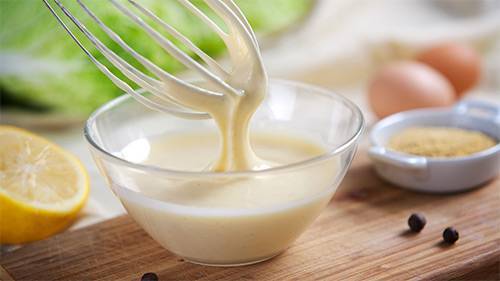
A classic sauce is prepared from vegetable oil, eggs, vinegar and spices. Sometimes vinegar is replaced with lemon juice and mustard is added. On the one hand, there is nothing wrong with these ingredients, but let’s still figure out why doctors have such a negative attitude towards mayonnaise.
There are no complaints about vegetable oil; it does not harm the health of either a woman or a child.
The next component is eggs. This product often causes allergies, which manifest as an itchy skin rash. Even if an allergy does not manifest itself, mayonnaise can have a detrimental effect on children’s still weak intestines.
Mustard retains fluid in the mother's body, as a result of which lactation is delayed and reduced. Is it worth risking the health of your own child because of some kind of sauce?
Vinegar containing complex alcohols and acids is more dangerous for the baby’s digestive system. The walls of the intestines and stomach are still defenseless and are not ready for such “surprises”.
A little history of the invention of mayonnaise
The world owes the invention of mayonnaise to the French. There are many stories surrounding this cold sauce about its origin, but the most popular is the one according to which mayonnaise was the work of the Duke of Richelieu’s cook. When, during the siege of the city of Mahon by the British, the French side began to run out of food, and only eggs and olive oil remained from food reserves, Duke Richelieu ordered the preparation of a new dish to raise the morale of the army. One of the cooks simply beat butter with egg yolks and added lemon juice, salt and available spices to the resulting mixture. The new sauce was named after the besieged city.
The main reason why store-bought mayonnaise is contraindicated for a nursing mother
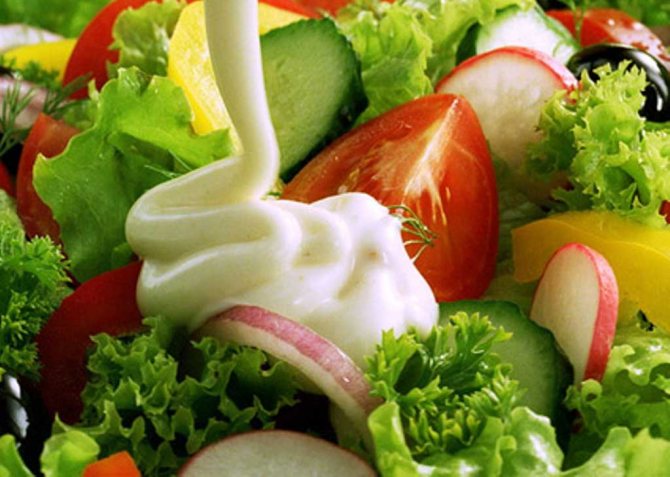
No matter how delicious the mayonnaise from the supermarket shelf may be, there are a huge number of arguments that speak against it, and the main one is its composition or what the sauce is made from:
- Vegetable oil. Usually they use sunflower oil, which has been subjected to certain processing, or lower quality oils: soybean, peanut, cottonseed or rapeseed. The processed product is ultimately deprived of not only potentially dangerous components, but also all vitamins and substances beneficial to the human body. In some cases, oils are replaced with chemically modified compounds. The body cannot completely digest such fats, and they remain on the walls of blood vessels, the liver and pancreas.
- Eggs, or rather egg powder, since eggs of natural origin have long ceased to be used in the production of this sauce.
- Preservatives, flavorings, thickeners, dyes and flavor enhancers. The composition of any packaged mayonnaise is replete with all kinds of stabilizers, emulsifiers, E-additives and unpronounceable components. Such compounds in mayonnaise are not advisable for an ordinary healthy person to consume, not to mention a nursing mother or infant.
In addition to the harmful food additives contained in store-bought mayonnaise, this product has a number of disadvantages, because of which it is better to avoid it. For example, its high fat content puts a lot of stress on the digestive organs and complicates the functioning of the digestive system.
Why is mayonnaise dangerous during lactation?
First, let's look at its constituent ingredients: sunflower oil, eggs, vinegar, mustard, salt and other harmful additives (emulsifiers, glutamate, preservatives and other harmful additives). In addition to chemical components, natural ones are also strong allergens. For example, chicken protein quite often causes allergies in children. Therefore, nutritionists do not advise nursing mothers to eat eggs, only as part of baked goods. Firstly, the eggs in this case undergo heat treatment, and secondly, their concentration is so low that the irritating component will not be able to cause a reaction.
Of course, not all babies are susceptible to an allergic reaction to protein, but this can often be the cause of bloating and colic. Moreover, in addition to protein, mayonnaise contains many harmful components:
- Vinegar, which has a negative effect on the baby's intestinal microflora. In some cases, this can result in dysbacteriosis for the baby. In addition, vinegar contains formic acid aldehyde, which quite often leads to an allergic reaction not only in infants, but also in adults.
- Mustard is strictly prohibited during lactation. Firstly, it has the property of inhibiting metabolic processes in the body, which is caused by fluid retention. This subsequently leads to less milk production. Secondly, mustard is a common food allergen and can cause a reaction in your baby.
The content of chemical components in mayonnaise negatively affects the human body, and if consumed frequently, it can cause cancer. Of course, a reasonable nursing mother would not even think of consuming such a product in her diet. Moreover, oncology tends to develop at the genetic level.
cottage cheese during breastfeeding
Negative effects of mayonnaise when consumed
It is known that consuming mayonnaise leads to negative consequences for the baby and the mother herself. If a woman does not remove this sauce from her menu in time, she may face a number of problems:
- Flavor enhancers can cause addiction and dependence on them. That is, after a fairly short time, a person can no longer imagine a dish without a delicious sauce and adds it to absolutely every recipe,
- gaining excess weight. This is not even due to high fat content or high kcal content, but to the fact that with mayonnaise a person eats much larger amounts of food than without it,
- diseases of internal organs. Such a food addition can cause ulcers, gastritis, atherosclerosis, problems with blood pressure, heart function, and also disrupt metabolism,
- deterioration in appearance, constant consumption of mayonnaise leads to negative changes in the skin, hair and nails,
- mustard, which is part of the sauce, affects lactation, it prevents the release of fluid, which inhibits milk production, and soon leads to its decrease,
- food additives in the form of emulsifiers of synthetic origin increase the risk of developing cancer.
Consequences of consuming mayonnaise for babies
Consuming this sauce can be harmful not only to women, but also to children’s bodies. The main problems that a baby may experience are:
- Allergy, the most powerful allergen is egg.
- Poor absorption of food, most of the ingredients in mayonnaise cause bloating in the baby, upset stool, and colic in infants under three months old.
- Difficulties in the functioning of the kidneys; the organs are not yet ready to remove the substances that enter the body when the mother eats the sauce.
- Negative consequences for the intestinal mucosa, the main irritating factor is vinegar, it affects the mucous membrane, and can often lead to constipation.
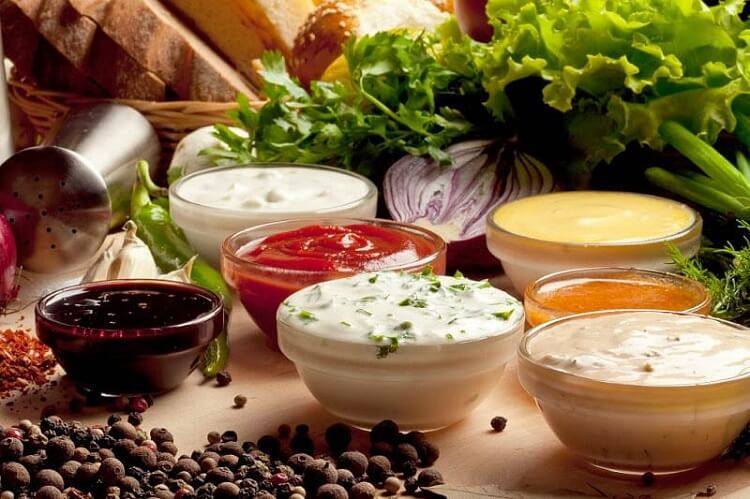
Mayonnaise for breastfeeding
If before pregnancy a woman could not imagine most dishes without mayonnaise, it is difficult for her to refuse it. Is industrial mayonnaise allowed during breastfeeding, why is its composition dangerous, what alternative to find.
Is it possible to eat mayonnaise during lactation?
Pediatricians are unanimous in their opinion that it is impossible. Neither in the first month, nor in the second month, nor in the subsequent period of breastfeeding.
The product can cause various problems for mother and baby. It is very high in calories, so the child’s gastrointestinal tract is overloaded.
The baby has digestive problems. And mom is gaining extra pounds.
Mayonnaise is prohibited even for school-age children. What can we say about a nursing mother and a newborn?
What's wrong with the sauce?
The classic mayonnaise recipe contains a minimum of ingredients. These are eggs, vinegar, vegetable oil, spices.
Some sauces add mustard and lemon juice instead of vinegar. The ingredients seem harmless at first glance. Actually this is not true.
• Vegetable oil is indeed harmless to mother and child. Unless replaced by modified compounds that cost less and last longer.
The body does not absorb such fats, and they remain on the walls of the gastrointestinal tract. In the future, this provokes many diseases.
• Mustard promotes fluid retention in the body. This interferes with lactation, reducing milk supply.
• Eggs can cause allergies in a child. One of the most common manifestations: itchy skin rashes. Eggs can also negatively affect the functioning of a baby’s intestines.
• Vinegar is potentially harmful to an infant's digestive system. The acid and complex alcohols in its composition threaten the walls of the stomach and intestines.
• Food additives in industrial mayonnaise are harmful to mothers and babies. As a rule, the shelf life of mayonnaise is at least several months.
It is clear that it contains harmful components: preservatives, thickeners, dyes, stabilizers, flavor enhancers.
Even if the composition contains a minimum of components, this does not guarantee the naturalness of the sauce. Perhaps the manufacturer simply hid some of the ingredients from consumers.
Potential harm to baby
What exactly is store-bought mayonnaise dangerous for babies:
• Causes addiction. Due to flavorings and flavor enhancers. The danger of addiction is fraught not only with this sauce, but also with other ready-made products from the counter with a long shelf life.
• Provokes weight gain. This applies to both the child and the mother. There are 2 reasons for this: the high fat content of the product and an increase in portions of food to which mayonnaise is added. There are studies that have shown that by adding sauce, a person is able to eat a double portion.
• Makes it difficult for the kidneys to function. They do not cope with the removal of food additives contained in the product.
Useful tips for mothers: NUTRITION FOR A NURSING MOTHER
• Contributes to the occurrence of diseases. Preservatives worsen the condition of nails, hair, and skin. The product can provoke ulcers, gastritis, atherosclerosis, problems with blood pressure, and heart problems.
This is due to excess fats that interfere with the functioning of internal organs, impair metabolism, and irritate the walls of the stomach.
How to replace mayonnaise from the store
When preparing salads and other dishes, it is quite possible to find an alternative to the usual sauce. Perfect for:
- sunflower or olive oil;
- sour cream;
- yogurt;
- homemade dressings and sauces.
What to make homemade mayonnaise from
If a mother really wants to add sauce to some of her dishes or eat a salad with mayonnaise on a holiday, she can make it herself.
This way its composition will be under control. And from a harmful product it will become at least a little useful.
• It is better to replace chicken eggs with quail eggs. They are considered hypoallergenic.
• Instead of vinegar, natural lemon juice is added to the sauce for nursing mothers. Vitamin C in its composition makes the product useful.
• The recipe also includes olive or sunflower oil. The choice depends on taste preferences.
Ketchup
Ketchup is also unsafe for a breastfed baby, as it can cause allergies. The main ingredient of the sauce is tomato puree; various spices, vinegar, apple puree or bell pepper are used as additives.
Ketchup can be included in the diet if the child is not allergic to tomatoes. The variety of this type of sauce allows you to choose the safest product possible.
It is important to pay attention to the composition and packaging of ketchup
Cheap products are made from low-quality raw materials and are characterized by a high content of modified starch, artificial flavors and dyes. Consuming such ketchup is directly harmful to health.
A nursing mother should not buy ketchups packaged in plastic bottles or soft packaging. Low-quality polymer containers can become a source of substances harmful to the baby’s health.
Elite ketchup is packaged in glass containers and has a limited shelf life, which indicates the absence or minimal amount of artificial preservatives. At least 40% of this product is puree from carefully selected tomatoes; only natural additives are used.
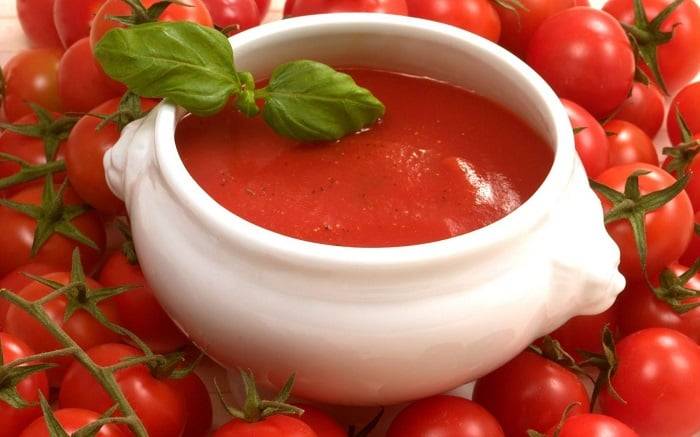
When choosing elite ketchup, you should avoid sauces with a strong, specific taste - with garlic, cilantro and other strong spices that will worsen the taste of breast milk.
Instead of store-bought ketchup, you can use homemade tomato preparations. Make sure that the product contains a minimum of vinegar and spices, and there is no excess salt, otherwise it will affect the functioning of the kidneys
First of all, this is important for women who were diagnosed with gestosis in the last trimester of pregnancy
You can consume ketchup in limited quantities (1-2 teaspoons), carefully monitoring the reaction of the body of a child older than six months - before this age, the baby’s gastrointestinal tract is not mature enough. Tomatoes are not among the strong allergens, but a new product can cause digestive disorders or skin rashes in a child.
If the baby has an allergy, postpone the introduction of ketchup into the mother’s diet for at least a month. There is no need to exclude a natural product from the menu - introducing a child to potential allergens through mother’s milk helps the baby’s body adapt. This reduces the risk of food allergies as the child gets older.
Since when is it allowed?
| GW period, months | Possibility of use |
| 1–3 | Strongly not recommended |
| 4 | Not recommended |
| 5 | Available in limited quantities |
| 6 | —* |
| 7 | — |
| 8 | — |
| 9 | — |
| 10 | Allowed |
| 11–12 | — |
*see previous line.
Carefully! In the first 4 months of breastfeeding, mothers should completely exclude mayonnaise from their menu. During this period, even a small amount can lead to digestive disorders, the development of colic, and allergic reactions in infants.
Gradually, the child’s gastrointestinal tract begins to work better; beneficial bacteria that appear in the intestines normalize digestion and strengthen the defenses of the tiny organism.
Starting from the 5th month, the baby is introduced to the first complementary foods, so the consumption of breast milk is somewhat reduced. From now on, rare, minor consumption of salads with mayonnaise is acceptable.
Attention! Even after the introduction of most products into children's complementary foods and a significant reduction in the frequency of breastfeeding, doctors do not recommend the regular use of store-bought mayonnaise and sauces based on it.
Why is store-bought mayonnaise dangerous?
Unfortunately, quite often unscrupulous mayonnaise manufacturers indicate false information regarding its composition on product packaging. The content of chemical impurities is not indicated at all; on the contrary, only natural ingredients are brazenly advertised. After all, eggs, even with vinegar, cannot be stored unchanged for 90 to 180 days, as indicated on many packages. Naturally, without preservatives, an egg with vinegar will disappear for a month. Nutritionists do not recommend that adults consume mayonnaise, and they prohibit it for nursing mothers, because this product poses a mortal danger to the baby. An adult can get away with digestive system disorders, especially heartburn after consumption.
Why is mayonnaise dangerous for a nursing mother?
It contains monosodium glutamate, a substance that enhances the taste and becomes addictive to it. Indeed, it is impossible to replace mayonnaise with any other product; a person will have a constant craving for it. At the same time, with its regular use, health may deteriorate:
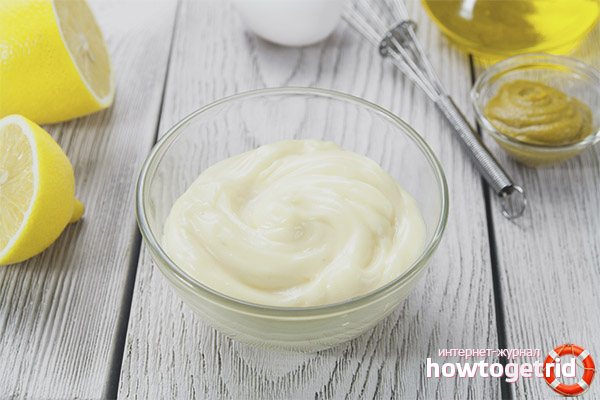
- Problems with excess weight. After childbirth, the metabolic process in the mother’s body is slowed down, so fluids are retained in the body. In combination with meat protein and animal fat, mayonnaise instantly adds unwanted weight, because it contains a lot of calories.
- Frequent consumption of mayonnaise leads to many serious diseases. This product affects the organs and vital systems of the body. The fats contained in mayonnaise tend to be deposited on the walls of blood vessels, which leads to increased blood pressure and disruption of the cardiovascular system and metabolism. The development of cardiovascular dystonia and even a heart attack is possible. Preservatives irritate the walls of the stomach, which leads to ulcers, gastritis and the development of food allergies to a specific component.
- Also, the constituent components negatively affect the condition and appearance of the skin, hair and nails. Saggy sides and a tummy appear with constant consumption of mayonnaise.
butter during breastfeeding
